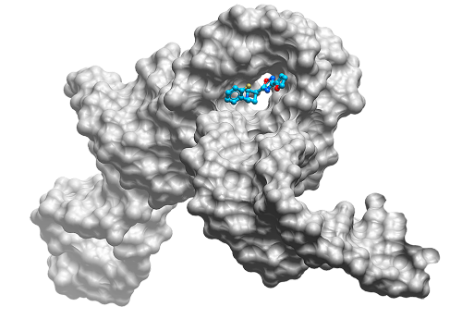
Ribometrix Nets $30 Million from N.C., Other Investors

Durham-based Ribometrix, a developer of small-molecule therapeutics that target ribonucleic acid (RNA), has raised $30 million in Series A financing.
The funding round was led by M Ventures, the venture capital arm of Merck, the German pharmaceutical, chemical and life sciences conglomerate. New investors Amgen Ventures, Pappas Capital of Durham and Illumina Ventures also participated along with founding investors SV Health Investors, AbbVie Ventures, Hatteras Venture Partners of Durham, MP Healthcare Venture Management, the Dementia Discovery Fund and Alexandria Venture Investments.
Ribometrix said it would use the new funding to advance its discovery platform and pipeline of novel small-molecule drugs that modulate RNA activity, as well as expand its team and business development activity.
The investment comes only two years after Ribometrix received a $75,000 Company Inception Loan from the North Carolina Biotechnology Center in 2016. That support helped the company raise $7.5 million in seed capital that preceded the new $30 million Series A round.
Targeting RNA to treat disease
Ribometrix’s discovery pipeline focuses on targeting RNA molecules that fold into complex three-dimensional structures containing pockets. Certain small molecules with high selectivity and favorable drug-like characteristics can fit in those pockets and bind to the RNA.
“Numerous diseases could be cured and lives of many millions of people could be improved by changing the behavior of disease-causing RNA,” Ribometrix explains on its website. The company is searching for microRNAs and messenger RNAs associated with cancer, fibrosis, Huntington’s disease and multiple sclerosis.

The Ribometrix platform is based on the inventions of the company’s scientific co-founder, Kevin Weeks, Ph.D., Kenan Distinguished Professor of Chemistry at the University of North Carolina at Chapel Hill. Ribometrix's other cofounder is Katherine Warner, Ph.D., who completed undergraduate studies in chemistry at UNC Chapel Hill and has expertise in RNA structure. Weeks is a company advisor and board member, and Warner is the company’s senior director of research.
Ribometrix is led by founding chief executive officer Michael Solomon, Ph.D, who has had previous roles at biotechnology companies Decibel Therapeutics, Link Medicine, Hypnion and Epizyme.

“A huge medical opportunity awaits RNA-targeting small molecules that can be designed in a systematic fashion, analogous to discovery methods currently employed for protein targets,” Solomon said. “We welcome the strong support of both new and existing leading venture investors as we pursue this exciting opportunity.”
Hakan Goker, Ph.D., senior investment director of M Ventures, will join Ribometrix’s board as a non-executive director.
“The ability to target RNA directly with small molecules offers the potential to unlock large, previously ‘undruggable’ target classes that could revolutionize the treatment of a wide variety of diseases including cancer,” Goker said. “The Ribometrix team has created and harnessed a highly novel platform delivering a strong pipeline of programs for future development. M Ventures welcomes the opportunity to add our support to this exciting company and experienced team.”
Filling ‘clefts and crevices’
Until recently, it was impossible to target RNA broadly and reproducibly because the three-dimensional structures of most RNAs were unknown. Ribometrix uses specialized technologies to discover three-dimensional motifs in therapeutically compelling RNAs.

The company’s scientists have shown that many RNAs implicated in disease contain clefts and crevices where small molecule drugs can bind. Ribometrix identifies ligands that bind specifically in these crevices and therapeutically modulate these RNAs.
Some RNAs are important because they are messengers that carry the genetic instructions necessary to synthesize a protein. Targeting these messenger RNAs means that it is possible to "drug" a protein even before it has been made.
Many RNAs don’t encode for downstream proteins but instead have direct regulatory functions. These RNAs, called non-coding RNAs, comprise up to 70 percent of the human genome and represent a huge opportunity for novel therapeutics, Ribometrix said.
